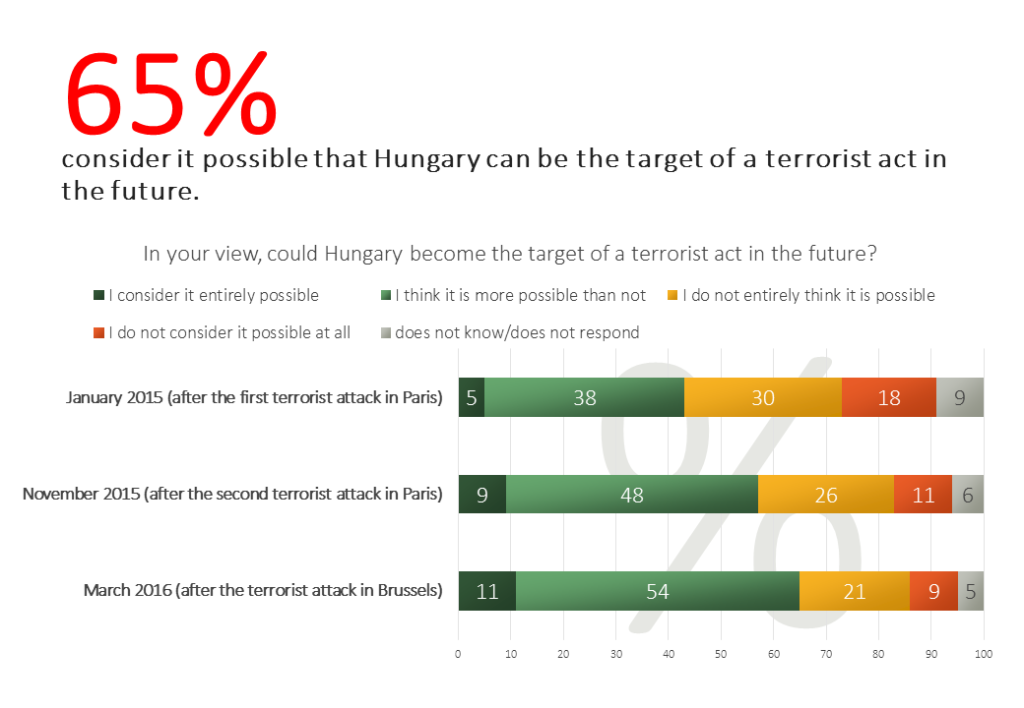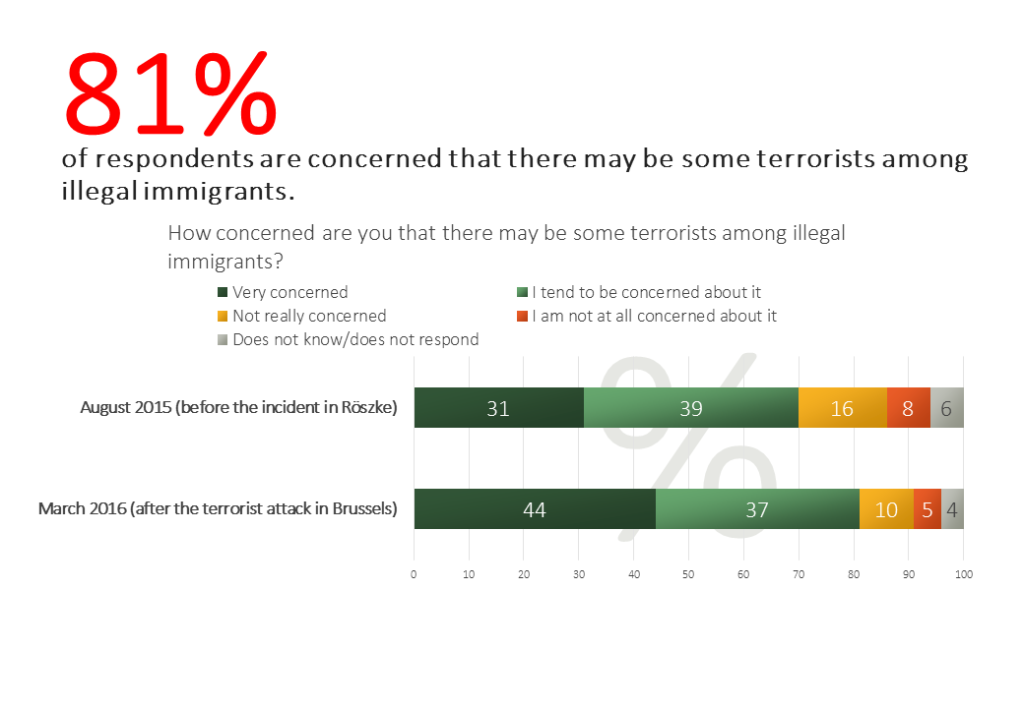Following last week’s terrorist actions in Brussels, nearly two-thirds of Hungarians (65 percent) consider it possible that Hungary can be the target of a terrorist attack – revealed the most recent public opinion poll by Nézőpont Intézet. In the wake of last year’s terror attack in Paris, 150 percent less people were thinking the same way (in Hungary), only 43 percent of the total adult population considered this possible.
Prior to last year’s terrorist attack in Paris, a public opinion poll showed that somewhat more people (48 percent) of the total adult population thought that Hungary cannot be the target of a terrorist operation. However, after the November tragedy, nearly three-fifths of Hungarians (57 percent) considered it possible that Hungary can be the target of such an attack. Following last week’s Brussels terrorist operations, the ratio of those considering the threat of terror to be real have increased to 65 percent within the total adult population. This change corresponds to a 150 percent increase compared to last January. On the other hand, about half of leftist sympathizers, 49 percent (MSZP, DK, Együtt, PM), still do not fear that such terrorist incident would take place in Hungary, while 63 percent of LMP supporters do not view that as a real possibility.
A sweeping majority of Hungarians (70 percent) were already concerned before last year’s incident at Röszke that there could be some terrorists among the illegal immigrants. This concern has further risen since last week’s terrorist attacks in Brussels to the point that currently four-fifths of Hungarians (81 percent) are worried about this. Regarding this issue even leftist sympathizers are not divided: 57 percent responded that there may be terrorists among illegal immigrants.
Methodology
Nézőpont Intézet’s public opinion poll taken by telephone was prepared by asking 1000 people between March 23-25, 2016. This sample is representative, pertaining to the population aged 18 years and older, classified by gender, age, religion, settlement type and schooling. In case of samples with a respondent pool of 1000, the maximum margin of error is 3.2 percent.
Download here.

